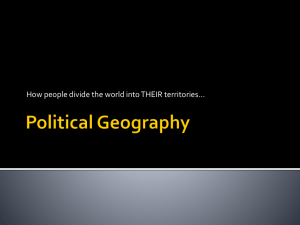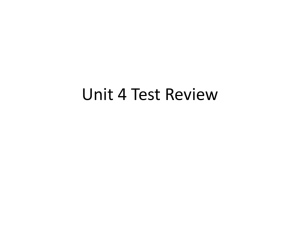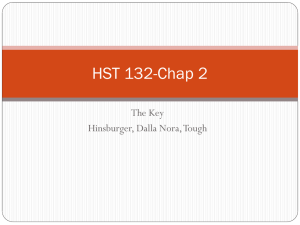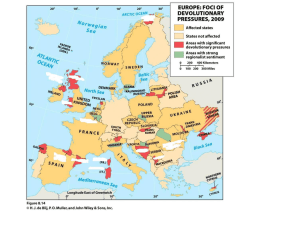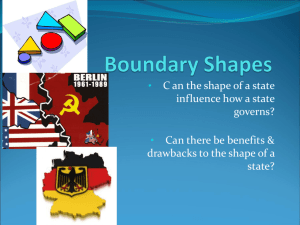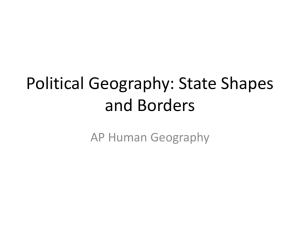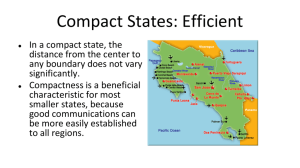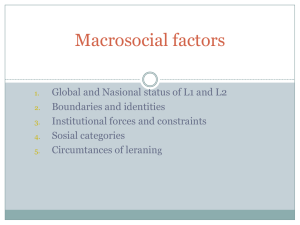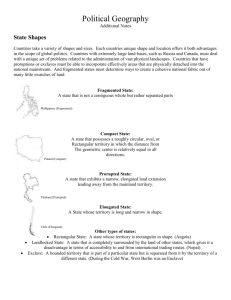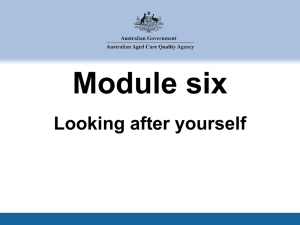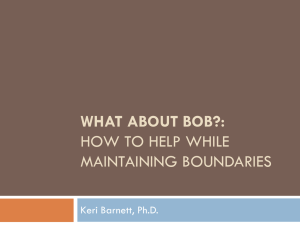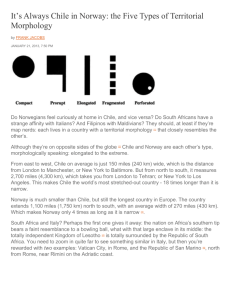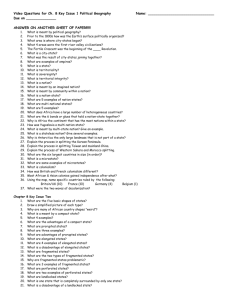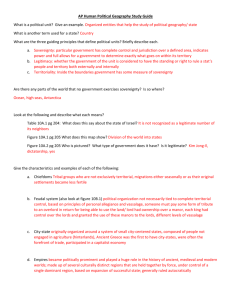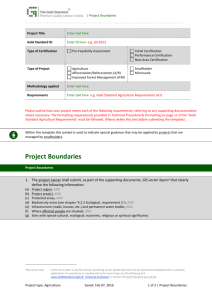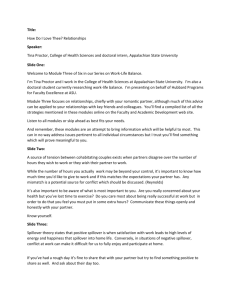Political Geography
advertisement
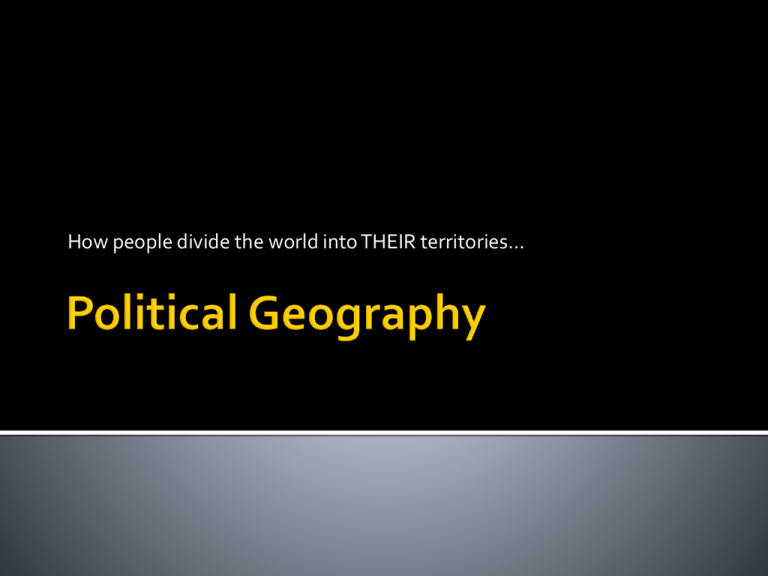
How people divide the world into THEIR territories… DOGS HUMANS State A space with a permanent population, territorial boundaries recognized by other states, a government, and sovereignty. ▪ A synonym for STATE is COUNTRY Sovereignty A state has sovereignty if it has authority over its own political, social, and economic matters. ▪ In other words, a country can take care of its own “stuff” without anyone else messing with their “stuff.” States generally have one of five different basic shapes: Elongated Fragmented Compact Perforated Prorupted Elongated States Elongated states have a long, narrow shape. Can lead to poor communication and isolation. Regions at either end may not be easily controlled by a central government. Example: Chile Fragmented States Fragmented states have several pieces of discontinuous territory (broken in pieces) 2 kinds: -Fragmented by water (like the Philippines ) -Fragmented by another state (ex. Russia is in two pieces) Compact States In a compact state, the distance from the center to the border is about the same on all sides. PRO: Good for communication and defense. Example: Uruguay Perforated States A state that completely surrounds another state. Example: South Africa completely surrounds Lesotho. Prorupted States Basically, they are compact states with a large, projecting extension. WHY? To gain access to resources (usually water) or to separate itself from problem neighboring countries. Ex. Afghanistan Landlocked States Have no direct access to the sea because they are surrounded by other states. Access is important for international trade. Must cooperate and negotiate with other countries for use of railroads and seaports. http://www.wordtravels.com/images/map/Indonesia_map.jpg http://www.lonelyplanet.com/maps/africa/democratic-republic-of-congo/map_of_democratic-republic-ofcongo.jpg Definition: Invisible lines marking a state’s territory. There are two types of boundaries Physical boundaries Cultural boundaries Physical Boundaries – Tied to distinct features of the natural landscape Three types: Deserts (hard to cross, sparsely inhabited) Mountains (Same as deserts) Water ▪ Most common boundary ▪ Ocean boundaries extend for 200 miles or more ▪ Fishing rights, defense http://www.ecardmedia.eu/data/media/49/Brooks%20Mountain%20Range, %20Alaska.jpg Cultural Boundaries – follows the distribution of cultural characteristics Two types: Geometric ▪ Straight lines drawn on a map ▪ Ex. U.S./Canada border Ethnic ▪ Language – Western Europe (U.K., France, Spain, Germany…) ▪ Religion (India/Pakistan) http://obit.staff.umm.ac.id/files/2010/09/india_pakistan_map.jpg Could these Christian regions become a fragmented state?
